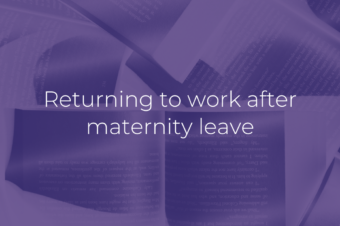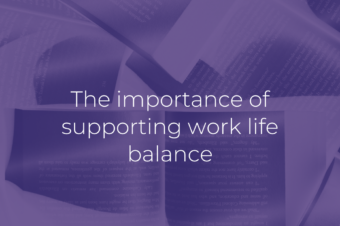
The transition back to work may be as difficult as the start of lockdown for some, and it may take time for team members to feel properly connected to work.
Lockdown has affected us all differently, and there is much uncertainty about what will happen as we head into autumn and winter. Your employees may be dealing with difficult emotions and feelings about the return to work, commuting and interacting with colleagues and customers.
Many employees will feel confident about returning to work, however, others will be worried and apprehensive. Good managers will help their team deal with their feelings about returning to work, and help them adjust to work in a changed environment which may present new challenges.
Focus on communication
Be kind and ensure a culture of kindness throughout the organisation so employees support each other in currently challenging times. Be patient as employees get used to the return to the workplace, most will quickly adjust but others will need more time.
Good leadership will ensure that line managers maintain regular contact with direct reports, checking in regularly with one to one consultations that affords employees the opportunity to talk and express their hopes, worries and concerns.
Good communication will ensure that all employees are aware of changes and adjustment that have been made in the workplace and of what to expect on returning to work, from changes to the physical environment to how their own role may have been affected.
Support and protect
Allow for a settling in period for employees who have been away from the workplace for some time. Re-establish goals and priorities and clarify how these will be achieved; some employees will take longer than others to adjust.
Allow for uncertainty and prepare plans for possible further local or national lockdowns, then share these with employees so they understand what will happen in a variety of circumstances. If you can involve employees in the planning process, that is likely to help the adjustment to the return to work.
Be sensitive to differences in the level of support employees will require; some have found the pandemic more difficult to cope with than others, indeed some employees could well have been bereaved as a result of Covid. Arrange individual support mechanisms as necessary and don’t forget to discuss and institute additional protective measures for vulnerable employees.
People centred leadership
Remember that managers may find the process difficult too and perhaps require time to adjust; we need to take care of ourselves before we can take care of others. Working with apprehensive, worried, confused and perhaps distressed employees is not easy and some managers may need support and coaching or mentoring to help them cope and manage well.
Be sure to reassure employees that your organisation is invested in them and committed to supporting them to achieve their potential. Make time for connected conversations with team members so they know their contribution is valued, that professional development remains important and feedback and guidance are available.
Leadership needs to be prepared for continued risk assessment and workplace adjustments to mitigate and manage risk at work. The way we work is likely to keep changing in the coming months, so don’t expect everything to return to normal; there is a long haul ahead. As with most change this is likely to offer opportunities to do things differently, and better.








